Rooftop Solar
Synergy Solar is a trusted rooftop solar company with expertise in delivering complete rooftop solar solutions across India — from consultation and design to installation, registration, and maintenance.
Electricity costs in India are steadily rising, and power reliability remains a challenge in many regions. Rooftop solar in India provides a sustainable, cost-effective solution that allows you to generate your own clean electricity directly from your rooftop. By installing a rooftop solar power plant, you can save up to 80% on monthly bills, reduce dependency on the grid, and benefit from government subsidies.
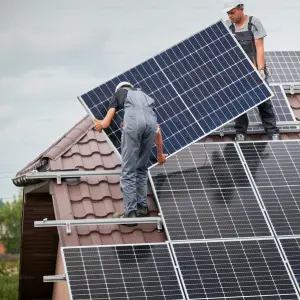
What is Rooftop Solar and Why is it Important?
Rooftop solar is a solar power system installed on the roof of a building that converts sunlight into electricity using solar panels and an inverter. Unlike ground-mounted systems, it makes use of existing roof space, making it practical for both urban and rural areas.
Why It’s Important
- Cuts electricity bills by supplying power for daily use
- Reduces grid dependency and diesel generator reliance
- Supports sustainability by producing clean, renewable energy
- Enables net metering, where excess power is fed back to the grid
- Adds value to homes and businesses with long-term savings
Types of Rooftop Solar Systems
A rooftop solar power plant can be built in three main configurations:
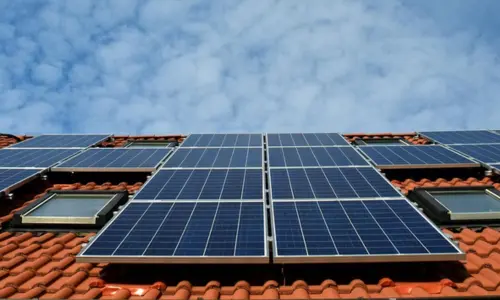
On-Grid Rooftop Solar
Connected to the utility grid. Any extra power generated is exported back to the grid through net metering. Ideal for areas with stable electricity supply.
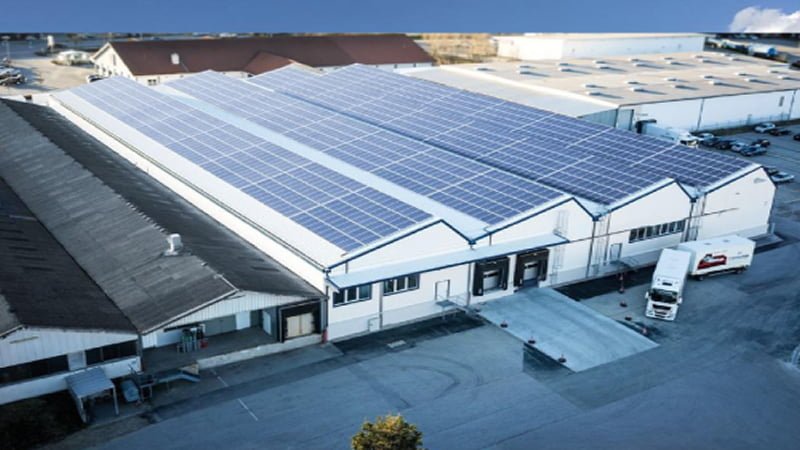
Off-Grid Rooftop Solar
Works independently with battery storage. Useful in remote areas or places with frequent power cuts. Provides backup during blackouts.
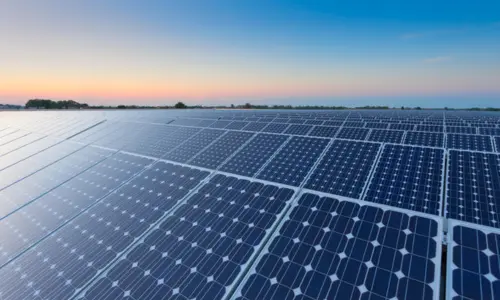
Hybrid Rooftop Solar
Combines on-grid and off-grid features. Excess energy can be stored in batteries and exported to the grid. Best suited for both urban and semi-urban conditions.
Benefits of Rooftop Solar
Eco-Friendly
Reduces carbon footprint and supports India’s renewable energy goals.
Durability
Panels last 25+ years with minimal maintenance.
Property Value
Installing solar panels can increase the value of your property.
Lower Bills
Cut electricity bills by 50–80%.
Subsidy Benefits
Eligible for rooftop solar subsidy from the Government of India.
Net Metering
Use the grid as virtual storage, selling excess power when allowed.
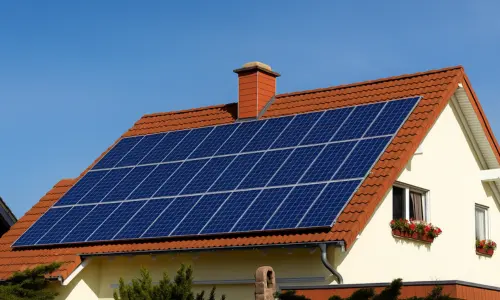
Factors Affecting Solar Cost & ROI
- System Size: Larger systems reduce per-kW costs.
- Panel Type: Mono (high efficiency), Poly (budget), or Bifacial (extra generation).
- Location: Sunlight availability varies across states (e.g., Rajasthan vs Kerala).
- Government Subsidies: Reduce upfront cost significantly.
- Net Metering: Exporting extra units to the grid improves ROI.
- Electricity Tariffs: Higher tariffs = faster savings.
Return on Investment (ROI) for Rooftop Solar in India
How ROI is Calculated
ROI=Annual SavingsTotal Investment×100ROI = \frac{Annual \, Savings}{Total \, Investment} \times 100ROI=TotalInvestmentAnnualSavings×100
Example ROI – 5 kW Residential System
- Net Cost (after subsidy): ~₹2.0–₹2.5 lakhs
- Annual Generation: ~7,000 units
- Average Tariff: ₹7 per unit
- Annual Savings: ~₹50,000
- Payback Period: 4–5 years
- Annual ROI: ~20–25%
- Lifetime Savings (25 years): ₹10–15 lakhs
This means a typical 5 kW rooftop solar panel for home can pay for itself within a few years and deliver free electricity for the remaining 20+ years.
Rooftop Solar Cost & ROI in India
The cost of rooftop solar systems in India has dropped significantly, making them more affordable than ever. With subsidies and net metering, the payback period is just 3–5 years, and systems deliver 20–25% ROI annually, ensuring long-term savings for homes, businesses, and industries.
Rooftop Solar Cost in India
The cost of a rooftop solar power plant depends on several factors:
System size (1 kW, 3 kW, 5 kW, 10 kW, etc.)
Location (sunlight availability and installation logistics)
Type of system (on-grid, off-grid, or hybrid)
Quality of panels and inverters
Rooftop solar structure (flat, sloped, or elevated)
Average Rooftop Solar Price Range (after subsidy)
- Residential systems: ₹45,000 – ₹60,000 per kW
- Commercial & industrial systems: ₹35,000 – ₹50,000 per kW (lower per kW due to economies of scale)
Example Residential Cost Estimates
| System Size | Cost Before Subsidy | Subsidy (Approx.) | Net Cost After Subsidy |
| 3KW | ₹1.8 lakh | ₹72,000 | ₹1.08 lakh |
| 5KW | ₹3.0 lakh | ₹1.0 lakh | ₹2.0 lakh |
| 10KW | ₹6.0 lakh | ₹1.2 lakh | ₹4.8 lakh |
Subsidy is 40% up to 3 kW and 20% for 4–10 kW under MNRE guidelines. Actual subsidy amounts may vary depending on your state and DISCOM
ROI Comparison – Residential vs Commercial vs Industrial
| Category | Payback Period | Annual ROI | Key Benefit |
| Residential | 4–6 years | 18–22% | Big reduction in monthly bills |
| Commercial | 3–5 years | 20–25% | Savings on higher tariff slabs |
| Industrial | 3–4 years | 25–30% | Reduced cost for energy-intensive operations |
Government Subsidy & Policies
The Indian government actively promotes renewable energy through rooftop solar subsidy programs under MNRE (Ministry of New and Renewable Energy). These schemes reduce upfront investment and encourage faster adoption of solar energy.
Residential Rooftop Solar Subsidy
- Up to 40% subsidy for systems up to 3 kW
- 20% subsidy for systems between 4–10 kW
- Applicable only for grid-connected residential installations
Commercial & Industrial Solar
- No direct subsidy is offered.
- However, businesses can benefit from:
1. Accelerated depreciation on solar assets
2. Tax rebates under renewable energy provisions
3. Lower operating costs from self-generation
Rooftop Solar Registration
To avail subsidy, customers must complete rooftop solar registration through the National Rooftop Solar Portal or their respective state DISCOM’s portal. The process involves:
1. Submitting an online application
2. Technical feasibility approval
3. Installation & inspection
4. Subsidy disbursement to the consumer’s bank account
At Synergy Solar, we assist customers with the entire process — from registration and approvals to final subsidy claim — ensuring a smooth and hassle-free experience.
Rooftop Solar Installation Process
At Synergy Solar, we follow a transparent and professional rooftop solar installation process:
1. Site Survey & Roof Assessment – Evaluate roof strength, orientation, and shading.
2. System Design & Quotation – Choose the right panels, inverter, and rooftop solar structure.
3. Rooftop Solar Registration – Complete paperwork for subsidy and net metering.
4. Rooftop Solar Panel Installation – Mounting structure, panel fixing, wiring, and inverter integration.
5. Testing & Commissioning – Performance verification and system handover.
6. Monitoring & Maintenance – Ongoing service for long-term performance.
Rooftop Solar Structure & Components
A rooftop solar power plant includes several components:
- Solar Panels: Mono, poly, or bifacial panels.
- Inverter & Batteries: Grid-tied, hybrid, or off-grid.
- Rooftop Solar Structure: GI, aluminum, or SS frames — designed for local wind loads.
- Cabling & Safety: Surge protectors, fuses, breakers.
- Monitoring Systems: Real-time performance tracking.
Applications of Rooftop Solar

Home
Lower bills, subsidy benefits, clean power.
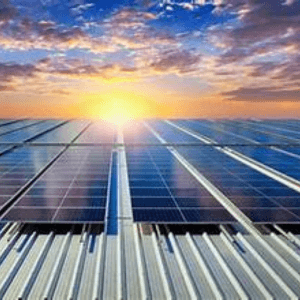
Commercial
Cut costs, green branding, sustainability.
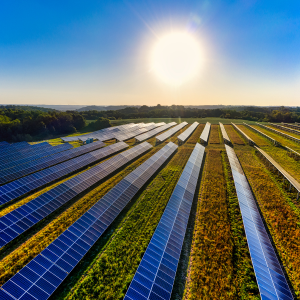
Industries
High ROI, reliable power, less grid dependence.
Why Choose Synergy Solar?
At Synergy Solar, we combine expertise in solar power installation with a deep understanding of farming needs to deliver agrivoltaic solutions that maximize land productivity and farmer income. Here’s why we are the trusted choice across India
Proven Experience
Years of expertise with 1000+ successful rooftop solar installations for homes, businesses, and industries.
End-to-End Solutions
From design, subsidy application, and rooftop solar registration to installation and maintenance, we manage everything.
Certified Quality
MNRE-approved components, durable rooftop solar structures, and trusted inverter brands.
Transparent Pricing
Clear cost breakdown with no hidden charges, helping you calculate ROI confidently.
Customer Support
Dedicated after-sales service and monitoring to keep your rooftop solar power plant performing for 25+ years.
Sustainable Impact
Every project contributes to India’s renewable energy goals and reduces CO₂ emissions.
Frequently Asked Questions (FAQs) on Rooftop Solar in India
What is the cost of rooftop solar in India in 2025?
The average rooftop solar cost in India is ₹45,000–₹60,000 per kW for residential and ₹35,000–₹50,000 per kW for commercial/industrial systems, after subsidy.
How much space is required for rooftop solar?
A rooftop solar system requires about 100 sq. ft. per kW. For example, a 5 kW system needs around 500 sq. ft. of shadow-free roof area.
How much subsidy can I get for rooftop solar in India?
Residential users can get a 40% subsidy for systems up to 3 kW and 20% subsidy for 4–10 kW under MNRE guidelines. Commercial and industrial users do not get direct subsidy but can claim tax benefits.
What is the payback period for rooftop solar panels?
The payback period for rooftop solar is typically 3–5 years, depending on system size, electricity tariff, and subsidy eligibility. After that, the power generated is almost free.
Does rooftop solar work during power cuts?
On-grid systems shut down during power cuts for safety, but hybrid or off-grid rooftop solar systems with batteries can provide backup power.
How long do rooftop solar panels last?
Most rooftop solar panels have a lifespan of 25–30 years and come with long-term performance warranties.
How do I apply for rooftop solar subsidy in India?
You can apply through the National Rooftop Solar Portal or your state DISCOM. At Synergy Solar, we help customers with the rooftop solar registration and subsidy claim process.
What are the benefits of rooftop solar for industries?
Rooftop solar for industries reduces energy costs, offers quick ROI (3–4 years), and helps meet sustainability targets by lowering carbon emissions.
Which is better: rooftop solar or ground-mounted solar?
Rooftop solar is best for homes and businesses with available roof space, while ground-mounted solar suits large-scale farms or industries with open land.
What is a rooftop solar power calculator?
A rooftop solar power calculator helps estimate system size, cost, savings, and ROI based on your electricity bills and available roof space.
